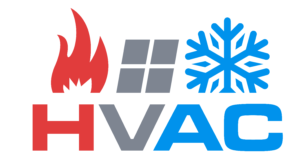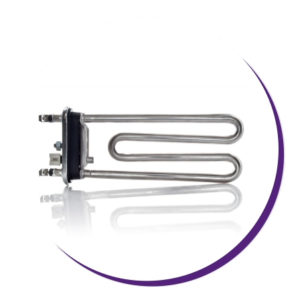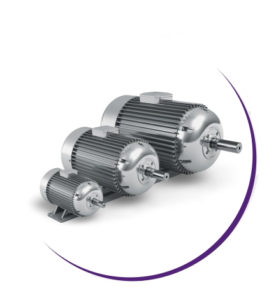Blog - OUR MARKETS - HVAC Systems : Solid State Relays
 HVAC (Heating, Ventilation and Air Conditioning) systems can be found almost anywhere to provide thermal comfort to people inside buildings. celduc® relais offers a wide range of Solid State Relays (SSRs) and contactors that can be used in commercial and industrial HVAC systems to keep them running smoothly and reliably. Solid State Relays (SSRs) are used for both heating control and/or motor control.
HVAC (Heating, Ventilation and Air Conditioning) systems can be found almost anywhere to provide thermal comfort to people inside buildings. celduc® relais offers a wide range of Solid State Relays (SSRs) and contactors that can be used in commercial and industrial HVAC systems to keep them running smoothly and reliably. Solid State Relays (SSRs) are used for both heating control and/or motor control.
SSRs offer many advantages when used in these systems, such as long life expectancy, no mechanical noise, low input current, fast response and can handle almost any type of load, so they are well suited for replacing older switching technologies, like ElectroMechanical Relays. In this new blog article you will learn more about celduc’s solutions for HVAC systems for both temperature controls and motor controls.
Temperature control is essential in HVAC applications to maintain a consistent temperature in a dynamic environment.
There are multiple solutions for temperature control depending on the application. The most common approaches include:
On-off control is the simplest method of temperature control. Using this approach, full power is supplied to an electrical heater until the desired temperature is reached, and then the system is shut off completely. Once the temperature drops past a defined threshold, power is restored until the set temperature is reached again. This cycle repeats continuously.
A PLC can be used to control the electrical power supplied to an electrical heater in a furnace by using PWM. The premise of PWM is that variable width pulses of full power are supplied to the system. The larger the difference between the setpoint and feedback from a device, the longer each pulse will be on. As the pulses are added together, an averaged amount of power is supplied to the heater to achieve consistent temperature levels without ever fully shutting down systems.
PID control is a closed loop mathematical function used to adjust process variables, allowing systems to deal with changes which would cause them to deviate from a desired setpoint. This kind of control can increase the efficiency of HVAC systems. By automatically adjusting equipment based on sensor data, PID controllers compensate for changes in the environment.
 Solid State Relays are the right choice for an accurate temperature control
Solid State Relays are the right choice for an accurate temperature control SSRs are used for the switching of heating elements and we offer solutions whatever the temperature control methodologies you have chosen.
-We offer a wide range of on/off Solid State Relays in single phase, two-phase and three-phase configurations. A Solid state relay switches ON or OFF when external voltage is applied across control terminals.
–ECOM0010 combined with our SU/SUL is a compact solution providing a communication interface, a current monitoring and a PID temperature controller.
–SO465620 is a single phase angle controller with PWM control to adjust power on resistive loads (linear power law response)
-The SWG8 three-phase controllers consist of a 0-10VDC control module and a power module customized for the load to switch. The control module has an analog input isolated from the mains to proportionally vary the operating duty cycle of a heating element connected to the power module.

Industrial HVAC systems consist of many components, which vary depending on the specific needs of the facility. The types of equipment commonly found in them include :
Compressor is used as a cooling medium for heat exchange. Solid State Relays are used to control the motor of these compressors.
Industrial facilities use fans for a variety of purposes. For example, they are used for exhaust, air intake, ventilation, and more.
Solid State Relays are used for safe a reliable operations
Solid State Relays are used for Speed control of AC fans in HVAC. In fact, manufacturers wish to improve energy efficiency of air handling systems by regulating fan speed of AC fans with a cost effective solution.

Celduc® relais offers a wide range of solid state relays and contactors that can be used in commercial HVAC systems to keep them running smoothly and reliably. A lot of these systems still use electromechanical contactors and relays but Solid state relays offer many advantages when used in these systems, such as long life expectancy, no mechanical noise, low input current and fast response.
As we have seen, SSRs can handle almost any type of load used in HVAC systems, such as fans/blowers, motors, compressors and they are perfect for use in heating control applications, where there is a requirement to switch electric heating elements on and off constantly to maintain a certain temperature. In some cases, a more precise temperature control can be achieved by using a proportional power control method such as phase angle control or burst fire control, which can only be done using a solid state device.
Which of the manufacturing and service sectors does not require industrial air conditioning? Certainly, medium and large companies and even certain public structures such as hospitals require air conditioning systems with sufficient capacity. Whether it is to cover a fundamental part of its processes, such as in the food and pharmaceutical industries. Or also, to carry out their activities in a more comfortable environment, as in the case of the service sector.
HVAC in the food and beverage industry helps :
The optimal standards of the pharmaceutical industry require maintaining temperature, ventilation and air quality conditions at specific levels, otherwise, the quality and effectiveness of the medicines could be seriously compromised.
It is not simply about the well-being of patients, doctors and all health centre staff. Industrial air conditioning systems in such spaces must respond to very specific challenges and comply with demanding regulations to help prevent hospital infections
In these areas many people spend a good part of the day, it is essential to offer favorable conditions.
HVAC systems are important for ensuring the safety and comfort of crew members and passengers. Key concerns in this sector are energy requirements, durability and internal space utilization.
Heating, Ventilation and Air Conditioning (HVAC) are all used to control the temperature of the Passenger trains.
Solid State Relays are ideal for controlling fan motors and valves, heaters, as well as air conditioning and heat pumps in commercial and industrial HVAC systems.
Low maintenance, long life and quiet operation makes celduc’s SSRs an ideal choice and equally suited for temperature regulation in water heaters, air heating units, speed control of AC fans.